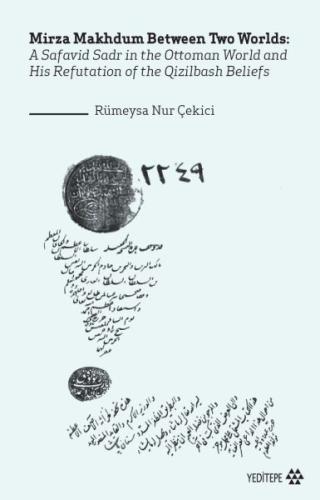9786257705134
553020

https://www.tdedkitap.com/mirza-makhdum-between-two-worlds
Mirza Makhdum Between Two Worlds
80.00
Mirza Makhdum was one of the most interesting characters of Ottoman history. He was a high-ranking bureaucrat in the Safavid State, but after taking refuge in the Ottoman Empire, he began a career as a judge in Diyarbakir, Tripoli and Haramayn in the late sixteenth century. He lived with a dilemma not only in the countries in which he lived, but also in his family life. Since, his mother's side is Sunni, his father's side is Shi'a. His work on the Qizilbash titled Al-Nawaki? li-Bunyan al-Rawafi? is crucial to understand the era.
This study indicates the identity crisis of Mirza Makhdum via investigating the Sunni-Shia conflict through the eyes of a scholar and tries to understand how a scholar from Iran has reached high ranks in the Ottoman Empire. Also,this study provides an exciting opportunity to understand the Safavid policy in the sixteenth century, the bureaucracy in the ilmiye class and the attitude of the Ottoman bureaucrats towards the Safavid scholars.
This study indicates the identity crisis of Mirza Makhdum via investigating the Sunni-Shia conflict through the eyes of a scholar and tries to understand how a scholar from Iran has reached high ranks in the Ottoman Empire. Also,this study provides an exciting opportunity to understand the Safavid policy in the sixteenth century, the bureaucracy in the ilmiye class and the attitude of the Ottoman bureaucrats towards the Safavid scholars.
Mirza Makhdum was one of the most interesting characters of Ottoman history. He was a high-ranking bureaucrat in the Safavid State, but after taking refuge in the Ottoman Empire, he began a career as a judge in Diyarbakir, Tripoli and Haramayn in the late sixteenth century. He lived with a dilemma not only in the countries in which he lived, but also in his family life. Since, his mother's side is Sunni, his father's side is Shi'a. His work on the Qizilbash titled Al-Nawaki? li-Bunyan al-Rawafi? is crucial to understand the era.
This study indicates the identity crisis of Mirza Makhdum via investigating the Sunni-Shia conflict through the eyes of a scholar and tries to understand how a scholar from Iran has reached high ranks in the Ottoman Empire. Also,this study provides an exciting opportunity to understand the Safavid policy in the sixteenth century, the bureaucracy in the ilmiye class and the attitude of the Ottoman bureaucrats towards the Safavid scholars.
This study indicates the identity crisis of Mirza Makhdum via investigating the Sunni-Shia conflict through the eyes of a scholar and tries to understand how a scholar from Iran has reached high ranks in the Ottoman Empire. Also,this study provides an exciting opportunity to understand the Safavid policy in the sixteenth century, the bureaucracy in the ilmiye class and the attitude of the Ottoman bureaucrats towards the Safavid scholars.
Yorum yaz
Bu kitabı henüz kimse eleştirmemiş.










